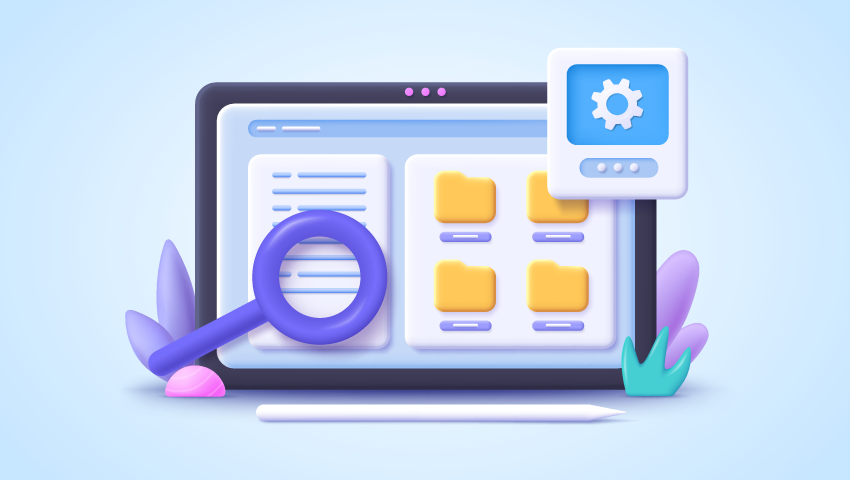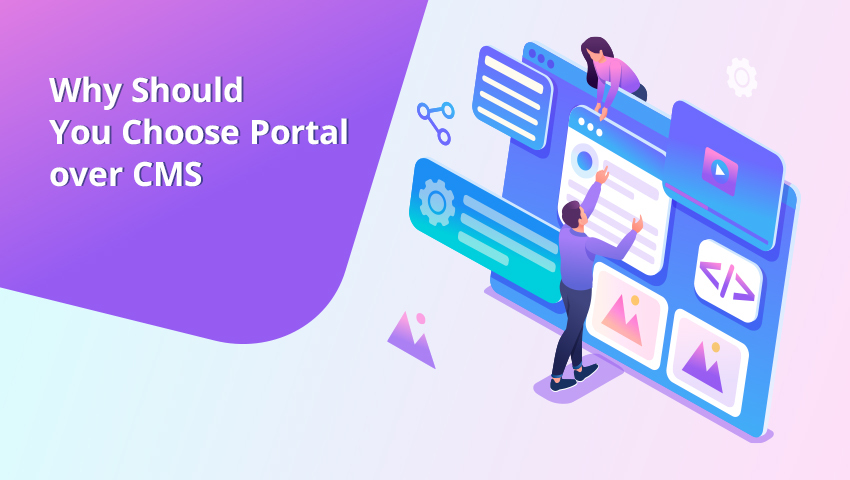Affiliate programs have gained immense popularity of late, and brands are adopting them at a large scale. Affiliate programs are a great way to grow your business quickly and easily. If you are a business owner looking to grow your revenue and sales, it is time you considered an affiliate program.
Let’s first understand what an affiliate program is.
What is Affiliate Marketing?
An affiliate program is where a brand collaborates with different individuals or small businesses to make them their affiliates. These affiliates then help promote and sell the products and services of that brand and get paid a commission in return.
In other words, it is a monetization model where an affiliate partner gets a payout by helping the brand achieve specific goals. Typically, the ultimate expectation or goal of a brand is sales. However, in some cases, it is not just sales but also generation of leads, free-trial users, clicks on websites, or app downloads. The affiliates get their payout when they help a brand achieve one or more of these specific goals as per the agreement terms.
Now that you know the basics of affiliate marketing let’s understand how it works.
How Does Affiliate Marketing Work?
Affiliate marketing includes sharing the responsibilities of product creation and marketing across different parties. It includes leveraging individuals’ abilities to create an effective marketing strategy and paying contributors a fair share of the profit.
The three parties that take part in affiliate marketing are the following.
- Sellers
- Affiliates and advertisers
- Customers
Let’s discuss the relationship between these three parties to understand how the affiliate system works.
1. Sellers
Sellers, whether solopreneurs or large enterprises, are vendors, merchants, product manufacturers, or retailers who want to market a product. The product can be anything – a physical object like a household good or a service like an IT service.
As a brand, the seller doesn’t need to involve itself in marketing actively. They sometimes can become advertisers too and profit from by sharing revenue with affiliates.
2. Affiliates/Publishers
The affiliates can either be individuals or companies that market the sellers’ products in an engaging way to potential prospects. You can also say that affiliates promote the products to convince customers that the products are valuable and benefit them. If the prospects buy the product, the affiliates receive a portion of the revenue generated.
Affiliates generally have a particular audience of specific interests to market products to. This helps create a niche or personal branding that affiliates can take advantage of to drive more customers through promotions.
3. Customers
Customers are the real drivers of affiliate marketing. Affiliates share the products’ information with customers via different channels – social media platforms, emails, websites, etc.
When customers buy those products, sellers and affiliates share profits. Sometimes, affiliates can choose to reveal to customers that they would receive a certain commission for the sales they make. At other times, customers may not know about the intent behind the promotion.
In either case, customers don’t generally pay more for the product they purchase through affiliate marketing. This is because the seller includes the affiliate’s share of the profit in the retail price. This way, the customer will order and receive the product usually without any effect from the affiliate system they are a part of.
Challenges in Affiliate Marketing
While running an affiliate program and an extra revenue stream sounds like a good idea, it isn’t that easy. There are some basic challenges that almost all brands face while managing their affiliate programs.
So, here are a few challenges that a brand can face while running affiliate programs:
1. Managing Your Affiliates
The more your affiliate partners are, the harder it turns to track their responsibilities, performance, and sales. There may be times when affiliates might need to reach out to you for any query, concern, or question. If you fail to reply to them in the stipulated time, they may lose motivation and commitment. It may even lead to daily conflicts and friction between you and some affiliates.
Besides, maintaining a proper exchange of documents and resources between you and your affiliates also poses challenges at times if you don’t have a streamlined way for that. In the absence of a centralized way to upload bills for you or place orders, view terms and policies, download invoices, and upload payment receipts for affiliates, management can be cumbersome.
This is because you may need to track different orders across different channels and send invoices to affiliates separately. This may lead to delays in payment processing or delays in order processing due to unintended overlooking of orders.
2. Finding the Right Partners
Initially, you may take on the task of selling and promoting your products by yourself. However, over time, you may feel the need to think of amplifying your efforts with the help of other affiliates, including brands or individuals. Finding the right affiliate is a big challenge as the affiliate partner is not just a regular marketer or salesperson that you can hire to promote your brand. An affiliate partner is someone who not only helps you promote your brand to your target audience but also shares insights and resources with you when needed. Further, they also would expect you to return the favor by sharing your knowledge and insights with them.
When there are so many affiliate partnership requests across different channels like email, calls, or any social media platform, it becomes challenging to compile and validate them. Without proper evaluation and comparison of different partnership requests, choosing the right partners poses challenges. This may take more time and more effort and can cause the choices you make to be wrong.
3. Maintaining Brand Integrity
The good thing about affiliate marketing is that it enables you to reach a broader audience through affiliates. The challenge is that it may sometimes be tricky to maintain your brand image while promoting your products through affiliates.
Your audience may become more confused instead of developing trust and loyalty towards your brand. At times, your audience may start seeing your products in association with your affiliate partner’s inappropriate behavior or actions that can have severe repercussions for your business.
Without you having the right content and messaging to convey the qualities your affiliates should have, your affiliate program may go haywire.
4. Upkeeping Security
As affiliate marketing has grown so popular of late, the cases of people using illegal means to “earn commission” too have increased. Enhancing security to keep them at bay from your affiliate programs is one of the biggest challenges.
Fraudsters can use a variety of ways to hack your affiliate program. They can use bots, fake affiliate links, content plagiarism, site duplication and drive clicks and registrations to their sites. This may result in a significant negative impact on your affiliate program and also cause you a loss of money and brand reputation.
5. Managing Rewards and Commissions
As your affiliates do a lot of hard work, they expect good returns. Managing rewards and commissions for numerous partners is cumbersome and time-consuming. The absence of a proper system and technology to decide your affiliates’ rewards and commissions based on the agreed terms and performance can cause issues.
Without proper valuation and payment, your affiliates may feel demotivated. They may start looking for other affiliate programs by other brands. As a result, it may leave you in trouble as your skilled affiliates may leave your affiliate program over time.
Tips to Manage Affiliate Programs Better
With a proper affiliate management system and strategies, you can streamline your affiliate management.
Here are a few tips that you can follow to manage your affiliate programs and networks more efficiently:
1. Centralize Affiliate Onboarding and Tracking
Managing the onboarding process for different affiliates across different channels and their tracking is challenging. This is where a centralized system to onboard and manage affiliates comes in handy.
When you have affiliate portal software to manage affiliates’ onboarding, it can help you reduce challenges. Affiliates can send their partnership requests and proposals via a portal, upload the relevant documents, and more. You can then evaluate the proposals easily and decide the best affiliates for your business.
This further eliminates the need for back and forth in exchanging documents, negotiating over any medium, deciding the commission fee, etc. You can update all these kinds of info in the portal and allow your affiliates to view it and generate any query or concern.
Besides simplifying onboarding, affiliate portal development can also overcome the challenges of affiliates’ performance tracking. You can get an overview of all the customers that come to your site via affiliate links and make purchases. This helps you identify the well-performing partners and poor-performing partners.
All these details can help you decide on future actions to strengthen your sales strategies, find loopholes, fix them, and enhance overall sales.
2. Keep Security Your Priority
Security is crucial to any affiliate management system. Therefore, it is important to consider every measure to keep your affiliate program’s security intact. The more affiliates that join your company, the higher are the number of customer links they require. This can create a security issue, and cybercriminals may attack, duplicate, or misuse these links.
To avoid this, use affiliate portal software with which a new affiliate can map these custom links to their identity securely. With affiliate portal development, you can enhance your security as well as the ease of individual login.
For your entire catalog, a new affiliate will need these custom links that map to their identity. An Affiliate Portal will enable you to let your affiliates manage this requirement without the involvement of your team members.
You can also give each affiliate a separate log-in to secure access and prevent any hacks, data leaks, etc.
Looking to ensure your portal’s security and manage other affiliates’ aspects better? Our affiliate portal solution can help you with that.
3. Ensure Long-Lasting Relationships
There is a need not just to expand your affiliate base but also to ensure building long-term relations. You should take care of various things to enhance your affiliates’ motivation, spirit, and loyalty.
Be transparent in payments and their terms and conditions. Give them the chance to negotiate and renegotiate the commission percentage as per market rates. Also, discuss your business’s goals regarding yearly sales figures, leads, and other factors to avoid later conflicts. Be clear about your policies and future plans so that they can give their best to align their effort with them. Along with all this, give them a means to reach you without waiting over the call or checking inbox for your replies to their emails.
If you have affiliate portal software, it can help you do this all. You can let affiliates generate orders, download invoices, make payments online, access knowledge articles, and access the relevant CRM info securely.
All this will help you achieve the right synergy with your affiliates, keep them motivated, and achieve your sales goals.
Choose CRMJetty – To Build a Feature-Rich Affiliate Portal
Now you have understood all about affiliate marketing – basics, challenges, and tips. Affiliate portal development can be a good way to streamline your affiliate management and enhance it.
If you are a business owner looking to manage your affiliates more efficiently, CRMJetty can be your best development partner. We provide a ready-to-integrate affiliate portal solution to help you with your affiliates’ management and make it better.
It has got online registrations, invoice management, knowledge management, enhanced security, and more features that you seek in an affiliate portal.
If you want to customize our portal, we’ve got you covered there too. Our portal solution is highly scalable and configurable, which allows for easy customization to fit your business logic.
Moreover, we also provide custom portal development services and update services like migration, repair, or bug-fixing for your existing portal.
All product and company names are trademarks™, registered® or copyright© trademarks of their respective holders. Use of them does not imply any affiliation with or endorsement by them.



